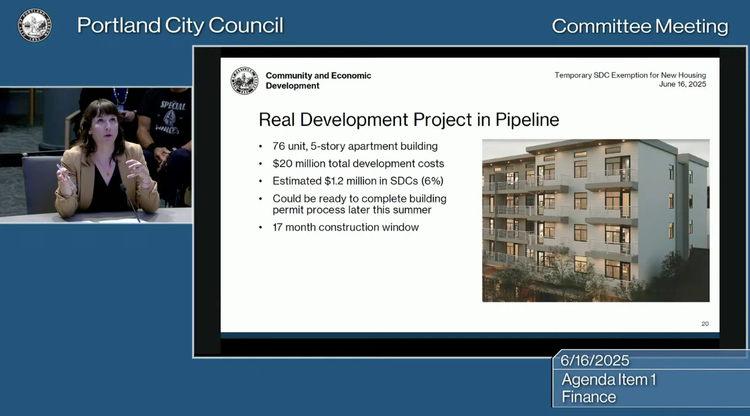Portland Finance Committee Unanimously Advances SDC Moratorium
On Monday, June 16, the Portland City Council’s Finance Committee voted unanimously to advance a sweeping proposal to temporarily waive System Development Charges (SDCs) for new residential construction — a bold move to help address the city’s ongoing housing crisis.
SDCs, which fund infrastructure such as parks, transportation, and water systems, can add tens of thousands of dollars to each housing unit, often stalling projects before they break ground. This moratorium is seen as a direct intervention to reignite development citywide.
Key Elements of the Proposal
SDC Moratorium Through September 30, 2028: The approved proposal includes a full waiver of SDCs for eligible residential projects, effective through September 30, 2028 — providing developers a clear and stable window for project planning and execution.
No Unit Threshold for Sunset: An earlier draft proposed ending the moratorium after 5,000 new units were permitted. That language has since been removed. While 5,000 units remains a policy goal, the moratorium will end based on the calendar date — not project volume.
Push for Accelerated Ratification: The original timeline called for final City Council ratification by October 1st. However, multiple committee members urged the Council to act sooner, citing the need to stimulate summer and fall construction activity. Calls for urgency were a recurring theme throughout the session.
Christina Ghan speaks before the Portland Finance Committee, highlighting Seneca’s 76-unit project as a prime example of housing that will break ground thanks to the proposed SDC waiver.
Industry Leaders Testify in Support
The hearing included compelling testimony from a cross-section of Portland’s development and design community. Those voicing support included:
Tom Warren, President of Development, Holland Partner Group
Michael Hamilton, President, Seneca Development
Ian Mackenzie, Senior Associate, TVA Architects
Along with multiple others from the architectural, construction, and affordable housing sectors
Each underscored how SDCs have constrained otherwise viable housing projects — and how this moratorium could unlock a new wave of urgently needed housing.

